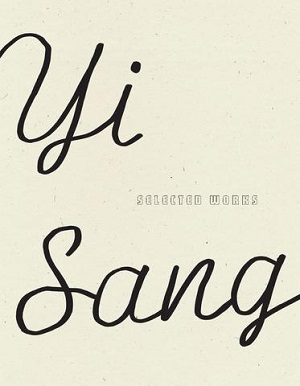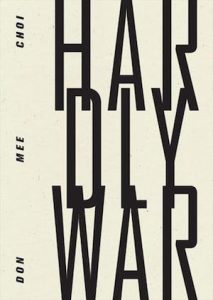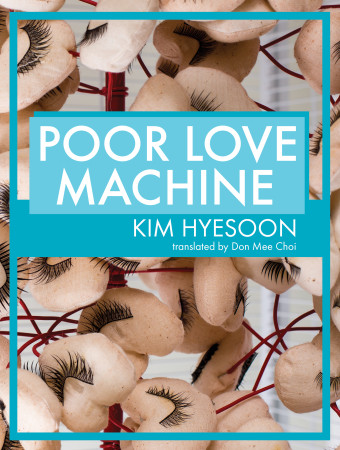
In a world already beset by far too many binaries, the false dichotomy of order and chaos may be the most dangerous. Whether on the socio-political scale, where championing “law and order” is a not-so-subtle promise of violent bigotry, or the literary scale, where the perpetually old guard decries increasing diversity and representation as unpredictable and dangerous, order and chaos stand in as palatable, almost mundane code-phrasing for whatever the user desires. I find this to be a particularly unfortunate set of circumstances, considering that, in my opinion, order and chaos, if indeed the two can truly be conceptually separated, truly thrive when united. The unpredictability of a system is vital for that system to evolve and adapt. The identity of a system, though in constant flux, is necessary to have meaningful interaction and existence. This is the frame of mind I am left in after having some truly meaningful interaction with the selected works of Yi Sang, a text that brings some blessed peace to my addled mind in a manner that does not ask me to sacrifice any of my creative impulse.
I finally chase down my galloping shadow and get in front of it. Now, my shadow chases me as if it is my tail.
My first impulse after sitting down to write about this text was to call it a “contradiction” and praise it for the confused but inspired initial state in which it left me. What we, the readers, are presented with is an intimate self-description of a flower caught in a hurricane. Even putting aside the pieces that are explicitly autobiographical, so much of this work is intensely personal, and it is so amidst the backdrop of imperialism. Yi Sang was born less than a month after the Japanese Empire conquered Korea, born into a region and a people that were having their identities torn apart and subjugated. He was educated in Japanese, worked for the imperial government, and through his passion for the arts and the connections it brought did he begin to press against the system around him. One might expect passionate calls for revolution, and yet several of the pieces in this collection express a fundamental and deeply relatable desire to return to simplicity.
When the citrons ripen, their skins come apart, and their insides ooze out. I pick one of them from the vine and hang it inside my room. I lie down beneath its voluptuousness as the juice drips down on me. I home that my emaciated pencil-like body will be fattened by this juice.
Among the most passionate moments of the text are those describing women harvesting fruit from trees, or those describing hope that retreating into the mountains might bring peace. There is a yearning for the familiar unknown – that which is lost but cannot be recalled. It took me longer than it should have, but I see now that there is no contradiction here. Yi Sang was a victim of imperialism, among many other things – imperfectly stripped of identity, left only with an incomplete mosaic of beautiful fragments to rearrange. “Order and chaos” were forced upon him, and he shows us momentary glimpses into his imprisoning dislocation. Even his choice of name, Yi Sang, carries this depth. The introductory timeline of the text mentions that the characters of Yi Sang’s name mean “plum tree” and “box”, and that he chose that name in honor of a painter’s box made of plum wood gifted to him by a friend.
Far away from the city, the stars double their numbers. It is so silent here that I might be able to listen to the celestial movements for the first time in my life.
I have a depthless soft spot and a jealous admiration for writers that can write simply without sacrificing complexity. Again, I know that sounds like a contradiction, but read Yi Sang’s texts and I think you will understand what I mean. He expresses the weight of centuries, an infinite and myriad expanse of meaning, in so few words. There is an effortless efficiency to his use of language (which, to keep going with the seeming contradictions, probably took considerable effort) that I find utterly vital to the thematic expressions he is attempting. This was a man who cherished those fleeting moments of emotional experience among a lifetime of confusion and suppression. His literature is like a series of psychic snapshots, endlessly layered with impossible detail of memory and history.
When she vomits blood, a wounded butterfly is perching on her. She is a tree branch stretching out like a spider’s web, tremulous under the butterfly’s weight. The branch eventually breaks.
It is kind of miraculous, then, that this text has been translated by four people – Jack Jung, Don Mee Choi, Sawako Nakayaso, and Joyelle McSweeney. I have remarked before that some of the best translation work is the kind that makes you forget that you are reading translation, and this is no exception. While I am sure that this translation team must have worked together on some level, the consistency of the voice throughout the text is still amazing to behold upon reflection. I did not find even a single hint of a whisper of a fragment of a hitch as Yi Sang’s literary voice pulled me into his world.
Eat the fragments of thought, otherwise the new thing is incomplete, kill the suggestions, people who know one thing should half the next thing after knowing one thing knowing three things, should make everything so to know one thing after knowing one thing.
And to be clear, that voice does not lose an ounce of strength, despite its desire for peace. I think there is a temptation to mistake an appreciation of both structure and change for being non-committal and weak, or to treat centrism in all things as some kind of utopian ideal. Yi Sang does not equivocate or excuse what imperialism has done to him, to his people, and to his cultural heritage. His is as quick to point out the unnatural distortions as the beauty. It is likely that this strength of his, this willingness to witness, is why the Japanese Empire killed him at twenty seven. His beautiful, bittersweet work proved prophetic as well – the cycle of rebirth is not exclusive to the good, and Korea is still the victim of imperial exploitation to this day. But these selected works help to keep the flame of his dreams alive, and I believe they will keep warm the souls of those today who can truly empathize with Yi Sang – the dispossessed, the colonized, and their descendants.
Yi Sang: Selected Works is available now through Wave Books.


 Hardly War by Don Mee Choi
Hardly War by Don Mee Choi